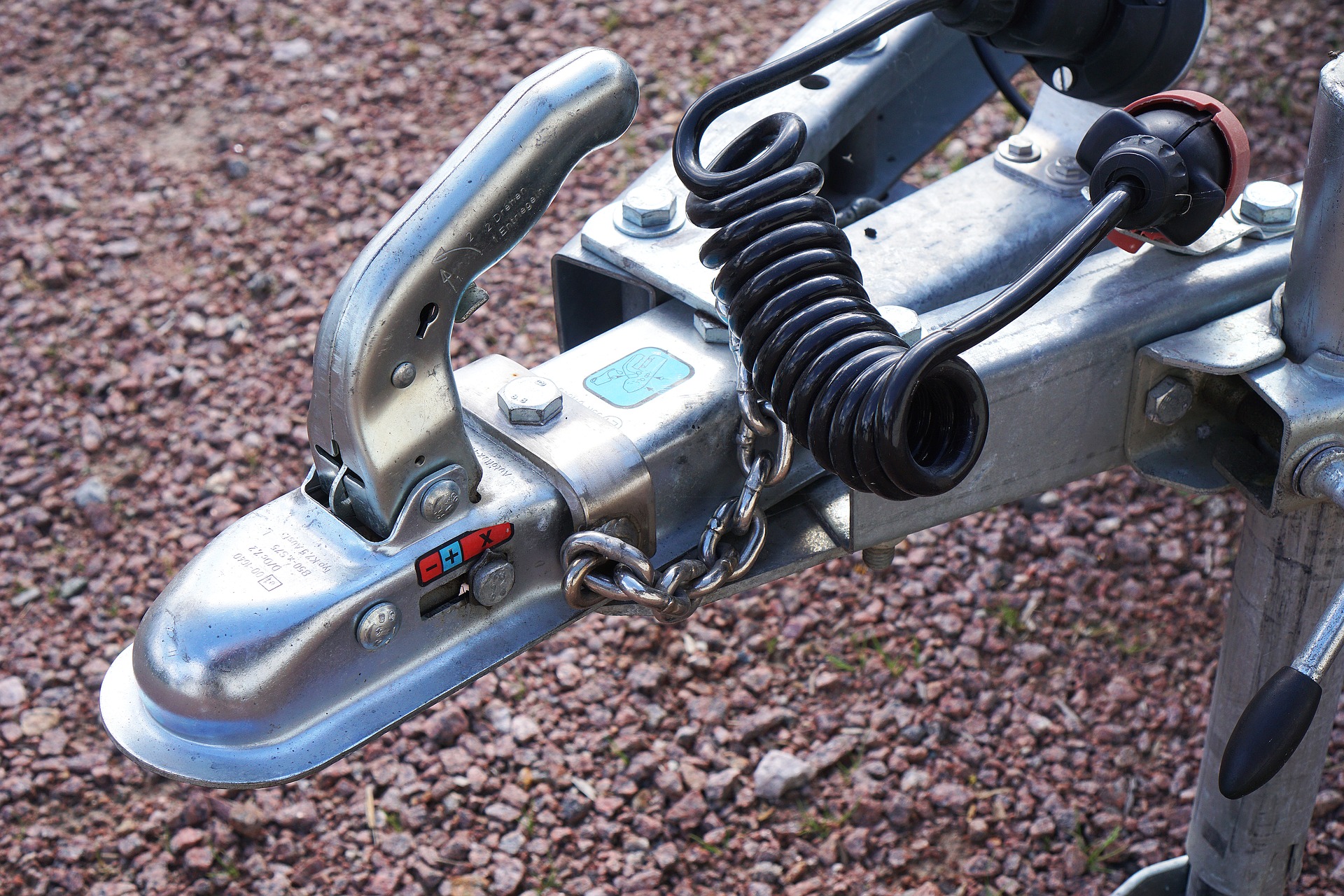Ample boat launches are available in Georgia, South Carolina, and North Carolina between the coastal waters, rivers, lakes, reservoirs, and more. Watercraft are trailered across the three states, considering the mild winters, which allow for boating year-round. Jacks are fitted on trailers to hold the tongue elevated when not attached to the tow vehicle. A jack is a critical component of the trailer. Here is what to know about a trailer jack.
How Does A Boat Trailer Jack Work
A jack operates by rotating a crank handle. When the handle is turned clockwise, a gear rotates in a direction to extend the tongue of the trailer in an upward motion. The opposite is lowering the height of the trailer tongue by turning the handle counterclockwise.
The adjustable section of the jack can be rotated into the upright and locked position parallel with the trailer tube. Pull the locking pin, turn the jack downward, and resecure the pin when in use.
Once the trailer is connected to the tow vehicle, pull the locking pin, rotate the jack parallel to the trailer tube, and lock into position.
Remember to place the jack in the upright and locked position while towed. The jack risks becoming torn away by making contact with the ground.
What Size Jack Do I Need For My Boat Trailer
When it comes to jack capacity, it is dependent on the maximum allowable weight of the trailer. Generally speaking, the tongue of the trailer bears eight to ten percent of the trailer’s total weight. The remaining weight is dispersed along the rest of the trailer.
A five thousand pound trailer carries five hundred pounds at the tongue. Ensure to match the weight load to the capacity of the trailer jack. Consult a trailer store or read the capacities before making the purchase.
When a jack is not rated for a specific load, you risk the jack from collapsing, causing damage to the trailer and but most importantly, leading to injuries.
How Do You Maintain A Boat Trailer Jack
It is essential to maintain a jack properly. Jacks are exposed to road dirt, salt water, moisture, and more. As a result of the exposure, they are prone to freezing, meaning the moveable components become locked in place.
After the jack is exposed to saltwater, rinse with a high-pressure freshwater hose to prevent salt from drying and causing corrosion.
Like all moving mechanical parts, grease is required. When the handle becomes stiff to rotate, this is a clear indication that oiling is needed. To prevent stiffness, grease two times per year to limit the risk of the jack becoming seized. We recommend applying Quicksilver Marine Grease to your boat trailer jack.
Similar to the extending portion of the jack are the locking pins. Locking pins move less freely when dirt and corrosion accumulate. To allow the locks to move with less resistance, spray with liquid lubrication, including WD-40.
In addition to the locking pin, the swivel portion is subject to wear over time. Apply a thin coat of marine grease or spray with liquid lubrication on a consistent basis.
What Are The Risks Involved With Trailer Jacks
Relying on a rotating piece of metal to support excessive weight puts people at risk when not focusing on the task at hand.
Remember to use caution and double-check each step connecting or disconnecting a trailer.
Disconnecting A Trailer
When disconnecting a trailer, ensure the vehicle is in park with the parking brake applied. Pull the locking pin, rotate the jack downward, and the most critical part is making sure the lock is snapped back into place. Crank the handle to lift the tongue free of the hitch.
It is essential to ensure the jack is locked. An improperly secured jack risks collapsing and falling onto a person. We have personally seen this happen.
Connecting A Trailer
Raise the height of the tongue by cranking the jack above the ball hitch. Back the vehicle to the tongue and lower the jack until the tongue rests on the ball. Ensure the hitch is positioned correctly on the ball, lock the hitch, rotate the jack, and pop the pin in place.
Boat Trailer Jacks Serve An Important Role
A boat trailer jack is essential when attaching and disconnecting a tongue from the hitch. The jack serves the purpose of lifting or lowering the front of the trailer. Remember to use caution when securing the jack in place by ensuring the locking pin is securely seated. As a boat owner, you will use a boat trailer jack on a consistent basis.






